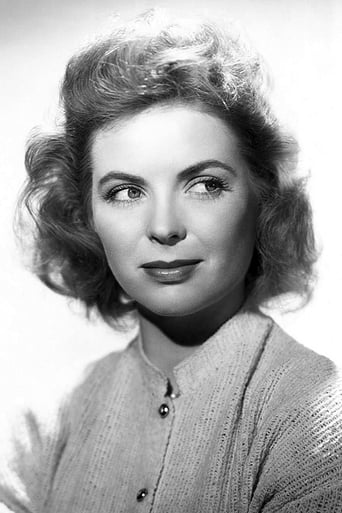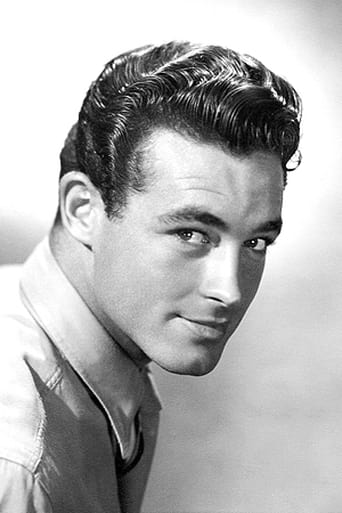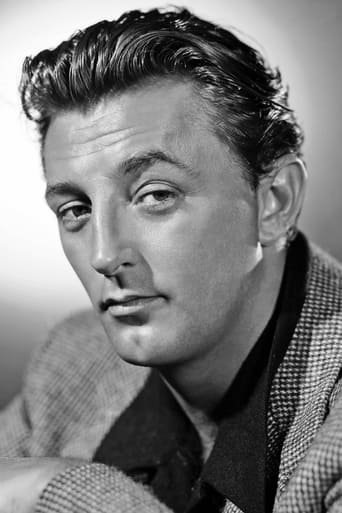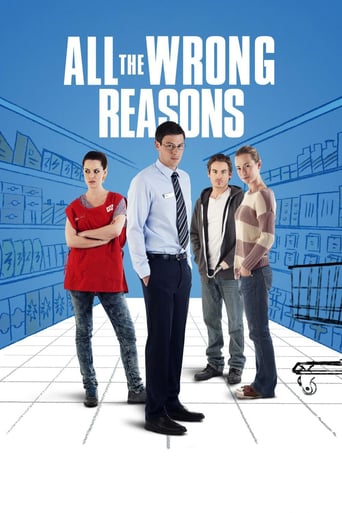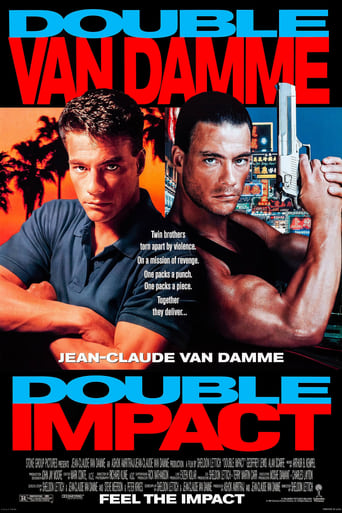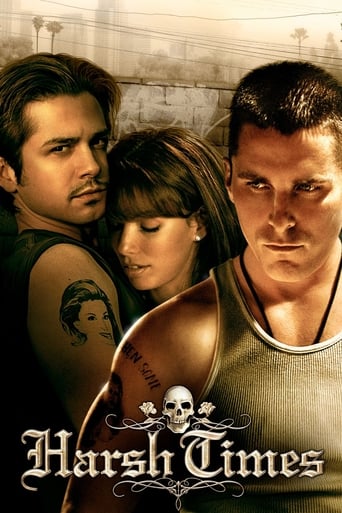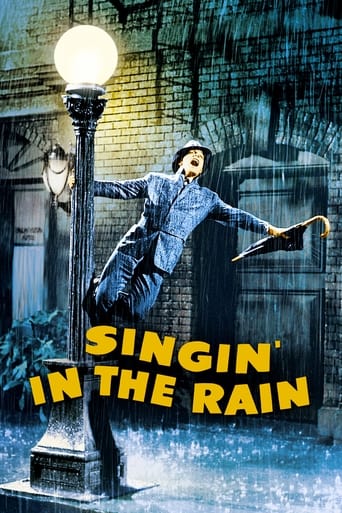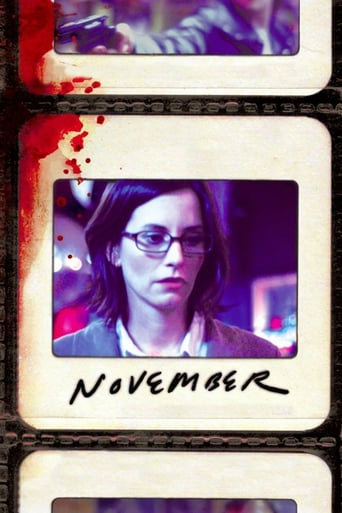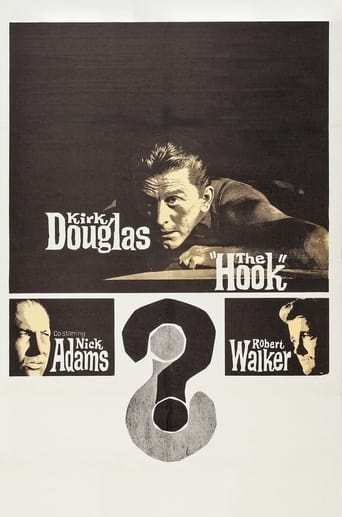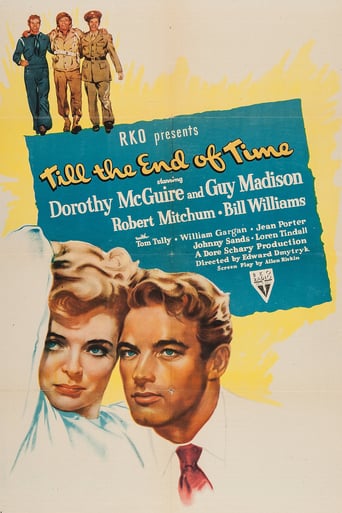
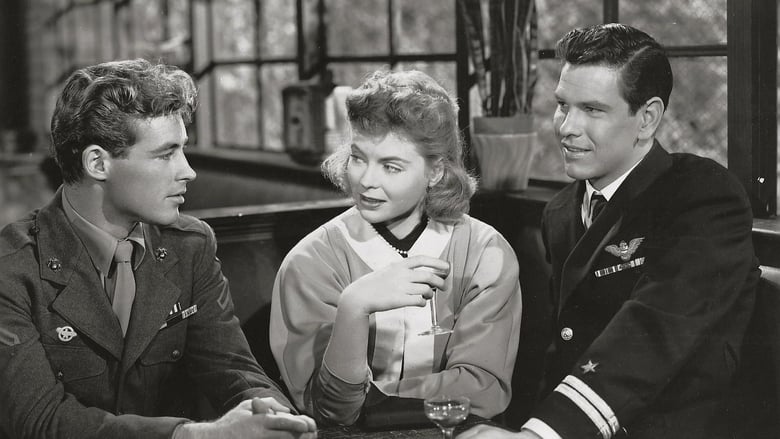
Till the End of Time (1946)
Three former marines have a hard time readjusting to civilian life. Perry can't deal with the loss of the use of his legs. William is in trouble with bad debts. And Cliff can't decide what he wants to do with his life, although he gets encouragement from war widow Pat Ruscomb.
Watch Trailer
Cast


Similar titles
Reviews
It is unconceivable that TILL THE END OF TIME is not celebrated enough for the excellent, superb film that it is. I am still under its spell, having watched it last evening on a DVD I bought in Italy this winter. It is incredible that Europeans are better able to appreciate this fine film than most Americans, as TILL THE END OF TIME has not yet been made available in DVD format in the United States and was released in VHS over twenty years ago! This is a story about young soldiers that come back home from the war, physically or mentally shattered by their recent experiences and often unable to adjust easily to civilian life. The film portrays their feelings with total honesty and we are transported to 1945 Los Angeles in a way that no other films seem able to do. Edward Dmytryk must be praised for his sensitive direction of the material. Guy Madison is very fine indeed in his role, giving a performance worthy of a young Montgomery Clift. Robert Mitchum, still quite young, made me think of Sean Penn in his rough but ultimately warm, sincere way of connecting with people. Finally, all accolades must go to Dorothy McGuire for her handling of a most difficult part. She is totally convincing as the young, sad widow who is trying to make a new start in life, not knowing exactly how. How brilliant she is here! How wonderful she always was throughout her career! I cannot understand how she never got an Academy Award for her work when several lesser actresses did.
Whereas "The Best Years of Our Lives" (1946) gave a Norman Rockwell picture of returning WWII veterans trying to reintegrate themselves into civilian life, RKO's "Till the End Of Time" (released four months earlier) was more concerned with confronting that subject head-on than idealizing it. Which ultimately makes it a better film if a less popular one with an escape seeking public who already had their fair share of trauma.Years later the television series "China Beach" would feature an episode (Fever) that was a worthy homage to this film. In that episode Nurse McMurphy comes home to Kansas where: " she goes to work as ward nurse at the local hospital while trying to make peace with her increasingly neurotic mother who does not approve of her fast, stressful lifestyle and bitterly tries to cling onto the past". I was reminded of that episode while watching Cliff Harper (Guy Madison) trying to deal with his mother. Particularly a scene where her mother throws McMurphy's fatigue uniforms away and a panicked McMurphy frantically rushes to the curb to retrieve them from the garbage can.The point being that both mothers want the family to resume their lives from the point they were at before the war. And while a part of each veteran wants this same thing, another part of them realizes that it is impossible; so they end up marking time for a period until they can get things sorted out internally. Their readjustment process is one of reconciling the desire to have things as they once were with the desire (need) to hang on to the changes or growth they have undergone. Director Edward Dmytryk symbolically dispels the notion that Cliff can ever pick up his life from where he left off, he does this through an early scene where Cliff discovers that his old civilian clothes are far too small for him. Although played for laughs this scene conveys more than just the physical changes to Cliff during the three years he was been a Marine."Till the End of Time" nicely illustrates this dynamic with the two new women in Cliff's life. Fresh-faced Helen Ingersoll (Jean Porter - Hollywood's all-time cutest actress) is a perfect fit for the pre-war Cliff; the type of girl he would be pursuing if things could magically go back to the way they were. But the high mileage Pat Ruscomb (Dorothy McGuire) is a far better fit for what Cliff has become. Cliff's attraction dynamic with these two females says in a nutshell everything the film is trying to illustrate. Thankfully Williams and McGuire have an effortless chemistry that helps them sell both their mutual attraction and their reluctance to move forward and let go of cherished parts of the past.The plot summary is a bit misleading, saying "three" marines have a hard time readjusting to civilian life and giving Robert Mitchum and Bill Williams (soon to be television's Kit Carson) equal billing with Madison and McGuire; as if there are three equally weighted parallel stories (insert "The Best Years of Our Lives" here). The story centers on Cliff Harper, there are only a few brief scenes that do not feature Madison. So fans of "Surfside Six" will get a full dose of their favorite star.My favorite scene is the one where Porter and Williams "cut a rug" to the sounds of the jukebox in the old soda joint.The most nostalgic scene was shot at the old Iceland skating palace. It looks like Porter does her own skating while someone doubles for McGuire. Unfortunately they did not go on location for the beach scene, and the projected beach background requires considerable suspension of disbelief.Then again, what do I know? I'm only a child.
No need to repeat the plot. That scene where Pat (McGuire) and Cliff (Madison) encounter the shell-shocked outpatient is genuinely disturbing. For a screenplay, that's a tough problem to treat in a single set-up. Pat's little anecdotal lesson works pretty well-- the soldier is relieved of his demons for the moment. But for how long, I wonder. And what will become of him, sitting alone, quaking, and afraid to go home. And how many others will come home like him. The script says the inner wounds will wear off eventually, but then it had to say something like that, otherwise the movie's hopeful tone would be compromised. And that would be counter to what the country needs following four years of horror. It' a decent, earnest movie, produced by the studio's (RKO) head honcho Dore Schary, so it's a prestige production. Looks like they took a gamble on an unknown Guy Madison in the lead role. He certainly looks the part—I can just about hear the echoing squeals of bobby- soxers even 60 years later. He does bring an earnestness that's refreshing, even if his range is pretty limited as the heavier scenes show. Newcomers Mitchum and the underrated Bill Williams also register, along with the dewy-eyed Dorothy McGuire before she became a favorite movie mom. But I especially like Jean Porter's vivacious teenager. It's really her Helen who projects the buoyant spirit of the coming consumer age.There were, of course, a number of these "adjustment" films as the country struggled with a return to normalcy. Where this movie excels is with the uncertainty of a recovering civilian world. Each main character is drifting as a result of the war. Each has been changed and must now work out how to fit back in. Then too, I like the rather ambivalent way the movie ends, avoiding easy solutions. There's one other sequence worth noting. The barroom brawl is both over-done and clumsily staged. Nonetheless, it makes an important point. Namely, that the war has changed society as well as individuals. A post-war America will be more inclusive than the traditional America. The logic appears to be that since it took everyone to win the war, no one should be excluded from the fruits. Given the civil rights movement soon to emerge, the movie thus proves prophetic. Too bad this worthy movie effort now seems so obscure. Despite the years, it remains an affecting look at a key period in American life and merits catching up with.(In passing—that's filmmaker Blake Edwards of Pink Panther fame as the shop foreman that Cliff tangles with, soon to become a screenwriter, and then an A-picture producer-director.)
A timely message at the close of WWII and one that needed to be told.Guy Madison is quite the looker but a great actor he is not. But considering this is his first leading role, he does well enough. This was well before my time and I had never heard his name before so it was nice to stumble upon someone considered quite the heartthrob in his day. It's interesting that he ended up married to Gail Russell, who I had heard of, but apparently the marriage didn't last long (she died an early death at 36 due to alcoholism).Mitchum shows good acting skills early in his career. Dorothy Maguire gives an interesting depiction of a war widow. Sure, she's not the best looking they could have cast here, but I think her "ordinariness" makes her character much more sympathetic and probably helped many real war widows see themselves in her character.I'm not sure the tidy ending did anyone a service though. I doubt many vets with real problems and issues could tie up there loose ends so neatly, but this is Hollywood.


